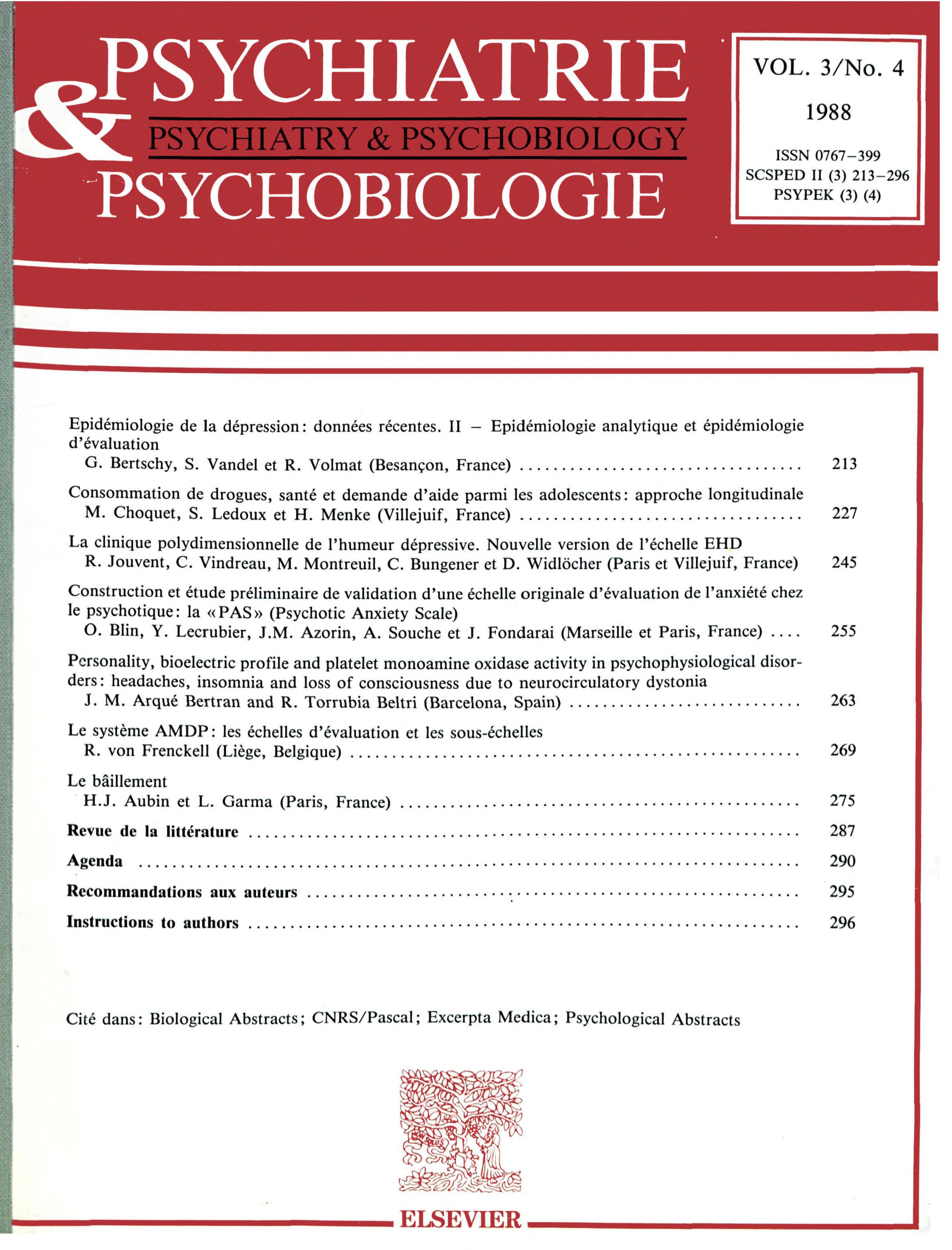No CrossRef data available.
Article contents
Curso a los seis meses del deterioro cognitivo leve y síntomas afectivos en la depresión de la edad avanzada
Published online by Cambridge University Press: 12 May 2020
Resumen
El deterioro cognitivo leve (DCL) es frecuente en los pacientes con depresión de la edad avanzada. Estudios anteriores indican que el rendimiento cognitivo en estos pacientes no mejora o lo hace marginalmente cuando se recuperan de la depresión. Sin embargo, la recuperación de los deterioros cognitivos debidos a la depresión puede tener un curso temporal más largo que la recuperación de los síntomas afectivos. En un grupo de 34 pacientes ancianos deprimidos (edad media: 73,4 anos) ingresados en una clínica de día gerontopsiquiátrica, se evaluó la gravedad de la depresión y el rendimiento cognitivo antes de la iniciación del tratamiento y se reevaluó seis meses después. En el ingreso, 18 de los 34 pacientes (el 53%) cumplían los criterios para DCL, con un predominio de los deterioros en la memoria a corto plazo y las capacidades visoespaciales. En el seguimiento a los seis meses, el rendimiento cognitivo no había mejorado significativamente para el grupo entero; 12 de los 27 pacientes (el 44%) cumplían todavía los criterios para DCL. No se pudieron verificar relaciones entre el deterioro cognitivo o el nivel funcional y la gravedad o el curso de la depresión. Los pacientes con variaciones diurnas de los síntomas depresivos tenían menos posibilidades de recuperarse completamente de la depresión.
Keywords
- Type
- Comunicación breve
- Information
- Copyright
- Copyright © European Psychiatric Association 2005
Footnotes
Adler G, Chwalek K, Jajcevic A. Six-month course o f mild cognitive impairment an d affective symptoms in late-life depression. Eur Psychiatry 2004;19:502-505.




